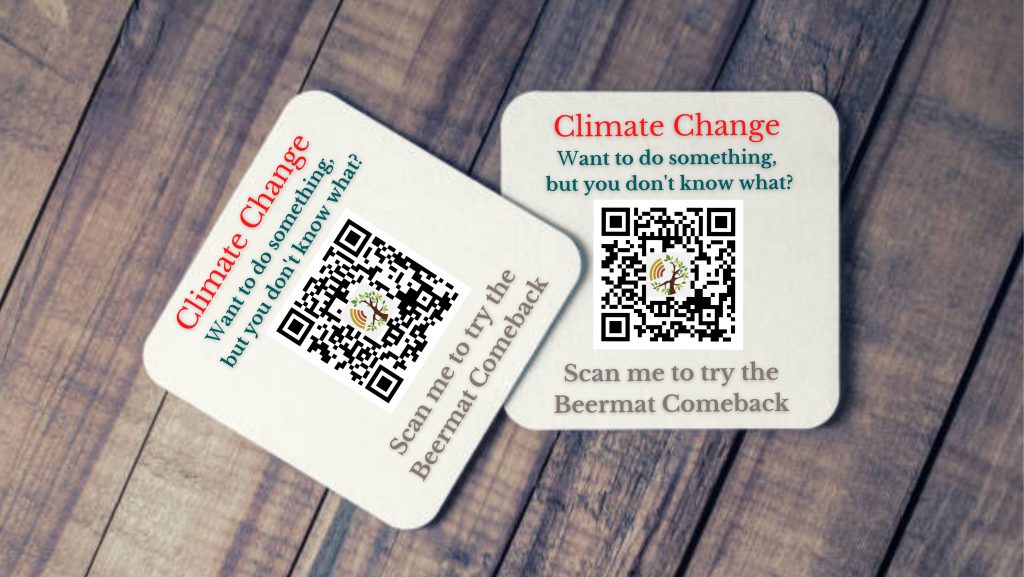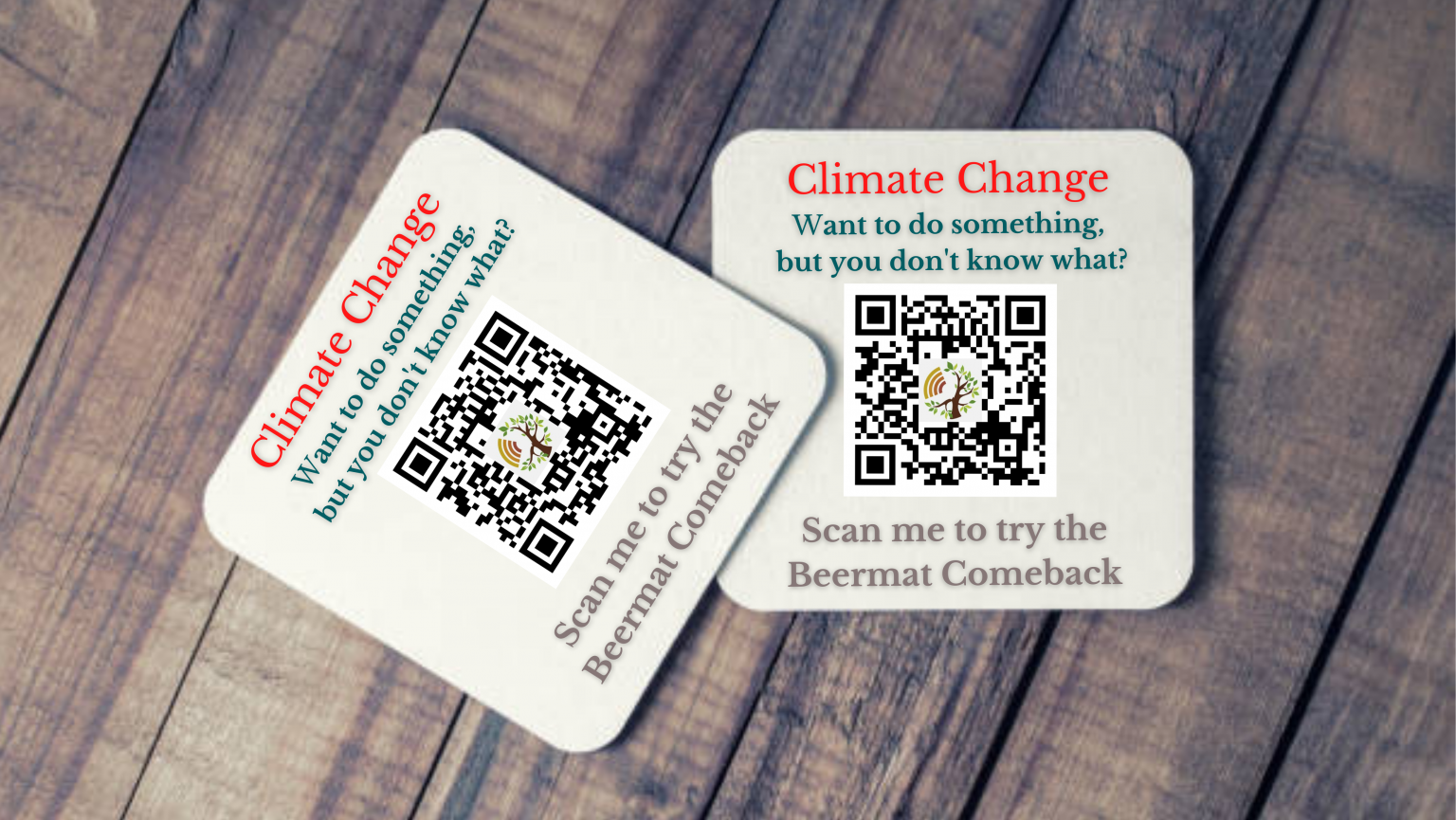The 3rd and final part of our video game suite – the part that measurably reduces carbon through effective climate action

How The Act Game Works
The Act Game is the third of our sequence of video games designed to engage players into a pathway from climate Inactivism to Effective Climate Action.
Like all See Through News projects, it is designed to measurably reduce carbon, and speed up carbon drawdown by helping the inactive become active.
The Act Game is the logical third step following our Think Game, and Learn Game. Unlike the Think Game and the Learn Game, the Act Game has no ‘Real World’ version to be shared via YouTube and other social media videos.
It is designed to answer the rhetorical question that so often ends conversations about climate change:
‘Yes, but what can we do about it?‘.
Here’s how it works:
In the ‘real world’, a QR code (e.g. on a beermat) takes such defeated shoulder-shruggers to an online pub.
With a simple, retro theme evoking 80s pub video game machines, players are invited to select one of the 6 pub characters whose interests are most similar to theirs;
- cars
- cooking
- DIY
- gardening
- fitness
- quizzes
Players then get to choose 1 of 3 Annoyances that most get their goat about their own area of interest.
Players are given a super-precise, actionable, effective Thing They Can Do About It, based on their hobbies.
This action costs no more than a minimum 30 seconds of their time.
What’s the Action of The Act Game?
The action is, having identified that individual’s particular carbon drawdown-related bugbear, to induce them to take action to fix it, by
- emailing their local elected representative (it works find with unelected ones too)
- copying the email to the minister in charge
This email doesn’t ‘educate’, ‘raise awareness’ or involve any such unmeasurable, unaccountable actions.
It informs. One might even say threatens.
The email goes something like:
Dear [local elected representative and minister in charge of XXX]
On [INSERT DATE HERE] our Parliament will vote on [INSERT NAME OF LEGISLATIVE BILL HERE]
Currently [INSERT SECTION REFERENCE HERE] of the draft bill being debated does NOT include the following clause:
[INSERT exact working of clause designed to measurably reduce carbon]
If implemented and enforced, this clause would result in [INSERT AMOUNT OF CARBON SAVED IN GIGATONNES].
Your vote on this is a matter of public record, to which I’ll be paying close attention.
If you vote to include this clause in the bill, I’ll consider voting for you (again) at the next election.
If you don’t, I definitely won’t.
Yours sincerely,
[INSERT PLAYER/VOTER NAME HERE]
How does The Act Game measurably reduce carbon?
Player choices determine the detail of the clause, but this Act is among the most effective things any of us can do to reduce carbon.
This Act has 3 major attributes:
Empowerment: The very process reminds individual voters of the democratic influence they have, even thought it is so often efficiently suppressed. The Act Game gives players the option of signing up for updates on how their MP actually voted, so this can also induce long-term engagement, not just a one-off.
- Efficacy: By being so specific, the Act Game email leaves the politician no room for manoeuvre or negotiation. The usual rhetorical tools of obfuscation, avoidance, straw man, ad hominem, whataboutery etc. are rendered impotent.
- Measurability: the clause must be tightly worded, drafted by experts who’ve a) endeavoured to close all loopholes and b) attached a specific carbon drawdown goal. Over time (and we can update players as the evidence comes in) we can inform them whether these carbon targets have been reached, and if not, why not.
- Effectiveness: the Act Game empowers individuals to influence government action. It shifts the focus from virtually futile changes to our Individual Behaviour, and places the focus squarely on Government Regulation and Enforcement.

